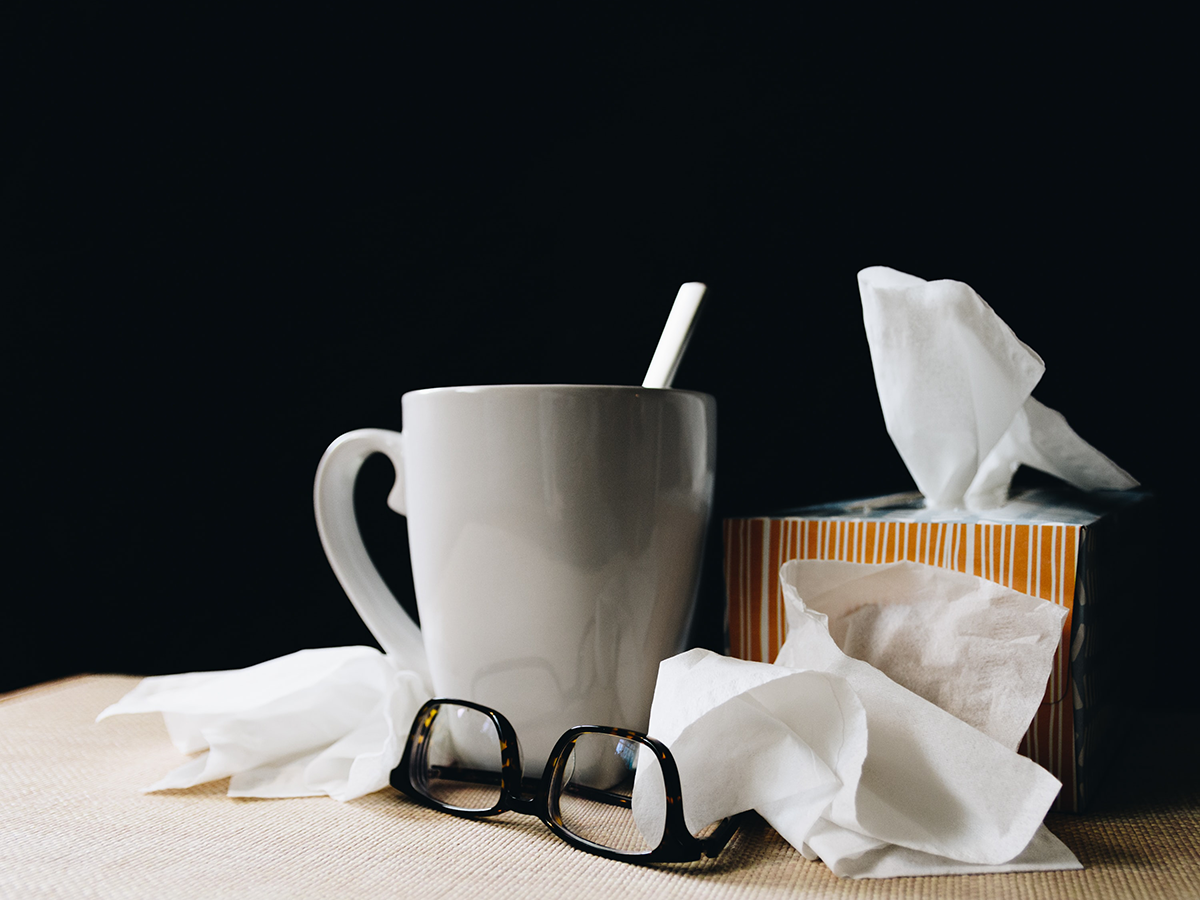Cold and Flu season is now commercially defined as the period from October until May, with the peak in cold and flu activity between December and February. Here are some of the most important things to consider to keep yourself healthy through the fall and winter months.
Virus vs. Host
Viruses and bacteria are in our environment 24 hours a day, 7 days a week, 12 months a year. So why do we have a “season” when we get sick? Some research does show that viruses are slightly more robust at colder temperatures. However, if the weather were the only factor, wouldn’t everyone in colder temperatures automatically get sick? The most significant factor contributing to whether someone contracts a bug is susceptibility. How well your immune system functions will determine whether you present with symptoms of a cold or flu and the severity of those symptoms.
The reason for the season?
What factors affect the strength of our immune system? Fatigue, stress, lack of sleep, and sugar and alcohol intake are just a few. When children return to school and extracurricular activities; when pumpkin spice everything and holiday cookies abound; when we travel home for the holidays and have a sip or two of eggnog, these factors and therefore our susceptibility to illness will increase. One of our most important immune cells, a neutrophil, is responsible for tackling these invaders. A study from The American Journal of Clinical Nutrition showed a decrease in neutrophil activity for up to 5 hours after consuming 100 grams of glucose, sucrose, fructose, honey or orange juice. A pumpkin spice latte and muffin together have 96 grams of sugar! Avoidance of sugar alone can increase your immune function dramatically.
Getting your Zzz’s
Our sleep wake cycle or circadian rhythm is the strongest regulator of our immune function. Our adaptive immune cell production and cell differentiation occur mostly at night while we are sleeping. Prolonged sleep curtailment for as few as 4 days can have a significant effect on our immune system. Improving your sleep is critical to preventing illness. Decreasing electronic use before bed, using a sleep sachet of lavender and hops on your pillow, or diffusing essential oils like lavender and chamomile can help prepare the body for sleep. Low doses of magnesium (350-500 mg) and melatonin (0.5-5 mg) can be helpful if taken 1 hour before bed. Often sleep disturbances are caused by overstimulation or fatigue of the adrenal gland and overproduction of cortisol. If sleep deprivation occurs for more than 4 or 5 days, consult a naturopathic doctor to help determine and treat the cause.
Creating a healthy gut
Our digestive tract is responsible for 70-80% of our immune function. Maintaining the health of our gut can make a difference in our overall health and ability to fight off colds and flus. Probiotics play a key role in regulating immune cell function and help to decrease inflammation in the intestinal mucosa. A good probiotic with at least a 10 billion count with diverse microbes is essential. The healthier our gut the more likely we are to absorb immune boosting nutrients from our fruits and vegetables like vitamin C, zinc, vitamin D, and other polyphenols and antioxidants. Pumpkin seeds, grass fed beef, spinach and kale are all rich sources of zinc. Additionally, having your vitamin D levels checked by your doctor is a great way to prepare for the season in order to determine how much supplemental vitamin D is best for you.
Homeopathic Flu Prevention
Many people are seeking alternatives to the influenza vaccine. In 2016-2017 the CDC reported only 42% effectiveness of the flu vaccine. That means you still had a 58% chance of getting the flu! In 2010-2011 season the efficacy was as low as 19%. An emerging alternative to conventional vaccines is the homeopathic flu immunization protocol designed to help your body recognize flu viruses and improve your immune response to these pathogens. Taking a single dose of this specialized homeopathic remedy once a month during cold and flu season can greatly decrease your susceptibility.
The ways to support your immune system naturally are many and varied. If you do come down with a cold or flu, antibiotics will not fight against viruses. Naturopathic medicine is a wonderful resource to assess your health, your nutritional status and to treat you naturally should you develop a cold or flu. Having a finely tuned immune system and early treatment are always the best approach.
This article appeared in Natural Nutmeg Magazine in October 2017, How to Prevent Colds and Flu Naturally






